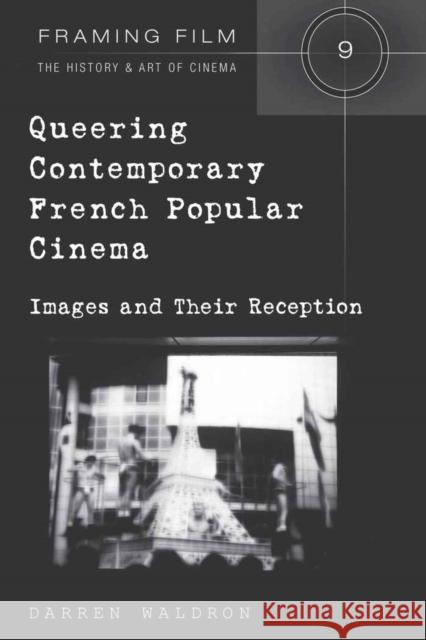Queering Contemporary French Popular Cinema: Images and Their Reception » książka
Queering Contemporary French Popular Cinema: Images and Their Reception
ISBN-13: 9781433107078 / Angielski / Miękka / 2009 / 305 str.
Queering Contemporary French Popular Cinema combines close film analysis with a small-scale qualitative investigation of audience responses to examine images of queerness in contemporary French popular cinema and their reception. Through its blending of the textual and the empirical, this book provides a unique insight into the ways in which sexuality and gender are represented on the cinema screen, as well as the spectator reactions they elicit. Since the mid-1990s, depictions of lesbians, gay men, and queer forms of sexual desire and identity have shifted to the mainstream of French cinematographic representation as evidenced by the box-office success of a series of highly commercial comic films, including Gazon maudit (Josiane Balasko, 1995), Pedale douce (Gabriel Aghion, 1996), Le Placard (Francis Veber, 2000), and Chouchou (Merzak Allouache, 2003). Alongside this commercial strand, a series of small-budget alternative comedies and other genre films have also challenged heteronormative conceptualizations of sexuality and gender. Films such as Sitcom (Francois Ozon, 1998), L Homme est une femme comme les autres (Jean-Jacques Zilbermann, 1997), Pourquoi pas moi? (Stephane Giusti, 1999), Drole de Felix (Olivier Ducastel and Jacques Martineau, 2000), and Les Chansons d amour (Christophe Honore, 2007) portray desire as fluid and/or gender as unfixed. With their use of parody and their blending of comedy with the musical, melodrama, romance or road movie, these and other similar films have resonated with a burgeoning viewing public, tired of having to seek queerness in connotation, of appropriating marginal characters in ostensibly straight narratives, and of tragedy and trauma as the principal modes of representation and spectator address."











